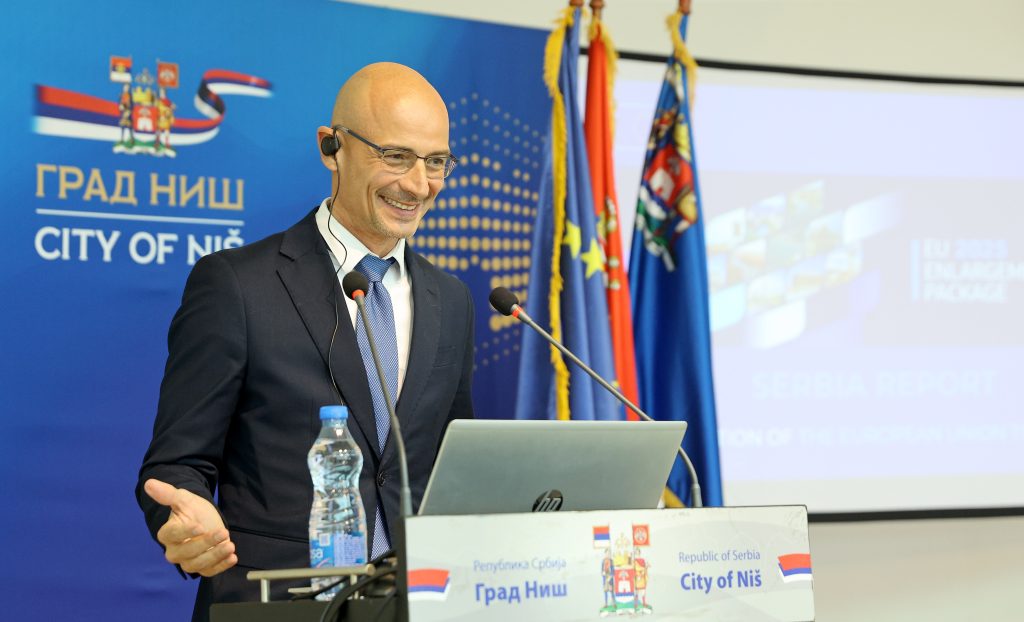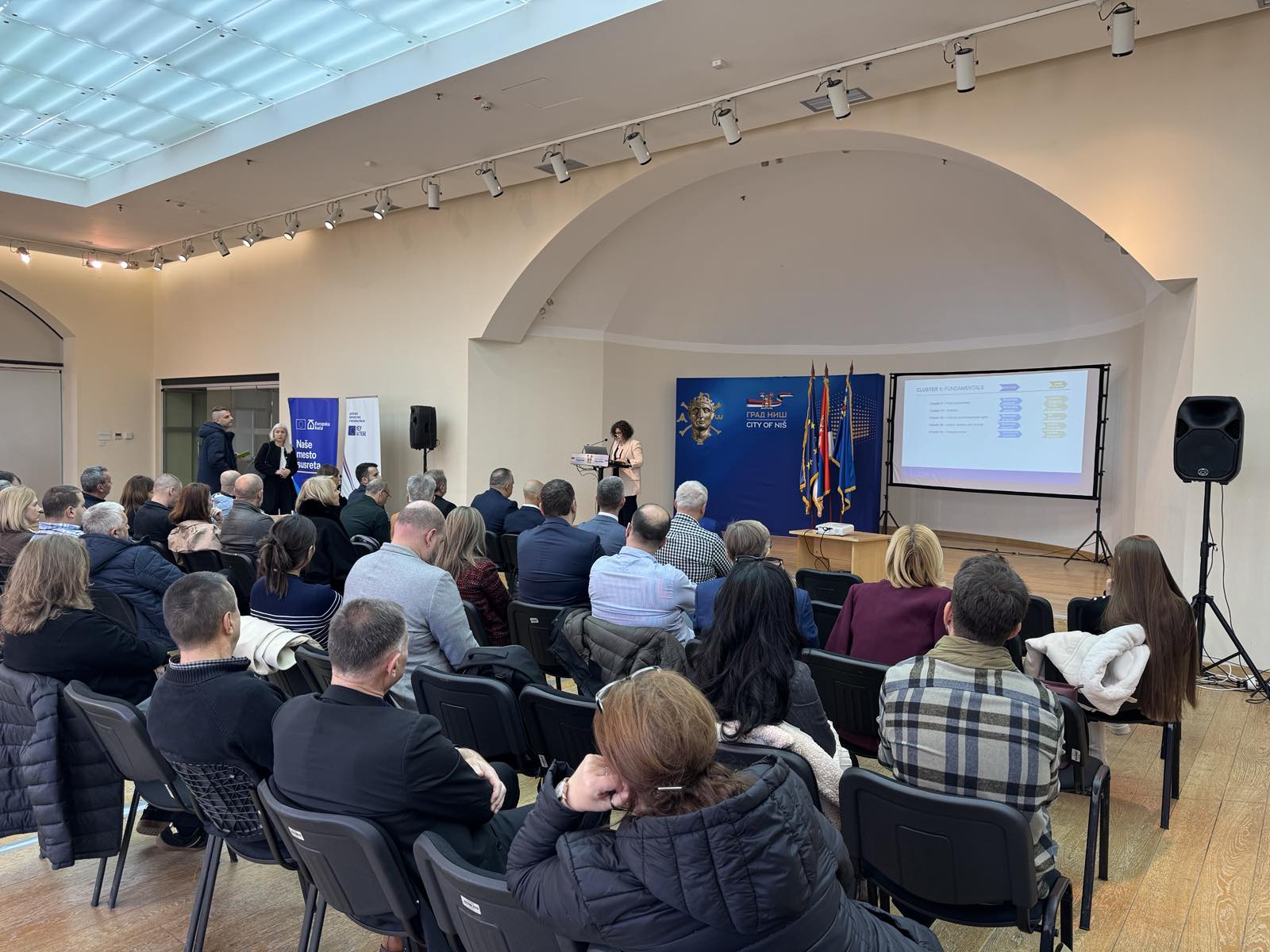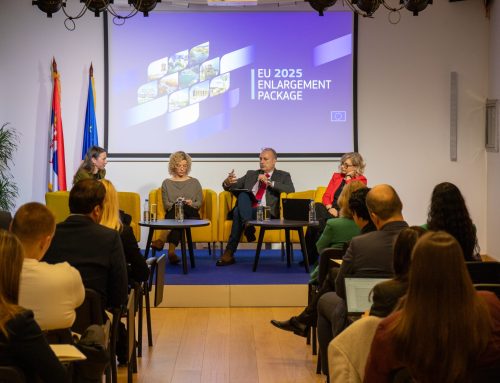The European Commission’s 2025 Report on Serbia was presented today at the Officers’ Hall in Niš, in the presence of representatives of the local government, members of parliament from Niš, as well as members of the academic, business, and civil sectors.
The report was outlined by Pasquale De Mico, Head of the European Integration and Economy Section at the EU Delegation to Serbia, and Silvi Estriga from the Delegation’s political section.
Opening the presentation, De Mico emphasized that the report assesses Serbia’s progress on its path toward the EU and serves as a roadmap for reforms that can bring concrete benefits to Serbian citizens. This is not a document of criticism, but a mirror reflecting both achievements and the areas where further work is needed, he said. He added that the report’s key finding is that the pace of reforms has slowed significantly, and that credible reforms are required across all sectors.

Pasquale De Mico, Head of the European Integration and Economy Section at the EU Delegation to Serbia
The presentation highlighted that Serbia is expected to overcome stagnation in the areas of judiciary reform, rule of law, and human rights, and to urgently halt backsliding in freedom of expression and the erosion of academic freedoms. Reform of the electoral framework in line with ODIHR recommendations was also underscored as essential.
Following the presentation, a discussion was held addressing current issues facing the local community. Participants called for greater EU involvement in matters related to the appointment of members to the Regulatory Authority for Electronic Media (REM) Council and the establishment of the Faculty of Serbian Studies in Niš.
De Mico reiterated that the European Union stands ready to support Serbia in its reform efforts, but stressed that the pace of accession depends on Serbia’s political decisions and commitment to implementing reforms.
“Serbia’s future in the EU is within reach—if it chooses to make it a reality,” he concluded.




